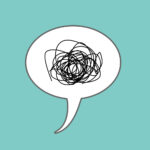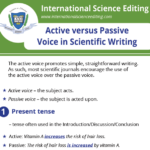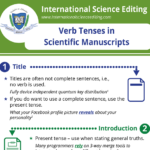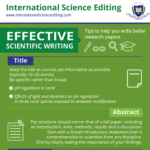Wordy text can be difficult to read. In this blog, we discuss ways to reduce wordiness in scientific writing, using real world examples from papers edited at International Science Editing. Look for synonymous words People use social media to share their views, thoughts, and opinions. People use social media to share their views. Views, thoughts, […]
Active versus passive voice in scientific writing (infographic)
In this infographic, we discuss the use of the active and passive voice in scientific writing. The infographic contains the following text: The active voice promotes simple, straightforward writing. As such, most scientific journals encourage the use of the active voice over the passive voice. Active voice – the subject acts. Passive voice – […]
Tips for writing sentences about science
Make your writing clear Say what you mean For example, the sentence The observed changes in the gut microbiota caused inflammation in the mice. suggests direct causation. However, if this was an observational study, the two outcomes were probably observed to occur together, but direct causation was not demonstrated. If so, the sentence should be […]
Verb tenses in scientific manuscripts (infographic)
A key aspect of producing a well-written scientific manuscript worthy of publication is the use of appropriate verb tenses in the different sections of the manuscript. In this infographic, we discuss when, where, and how to use the different verb tenses. The infographic contains the following text: Title Titles are often not complete sentences, i.e., […]
Effective scientific writing – Tips to help you write better research papers (infographic)
In this infographic, we provide some useful tips to help you write better research papers. The infographic contains the following text: Title Keep the title as concise yet informative as possible (typically 10-20 words). Be specific rather than broad. pH regulation in coral ✘ Effects of light and darkness on pH regulation in three coral […]





